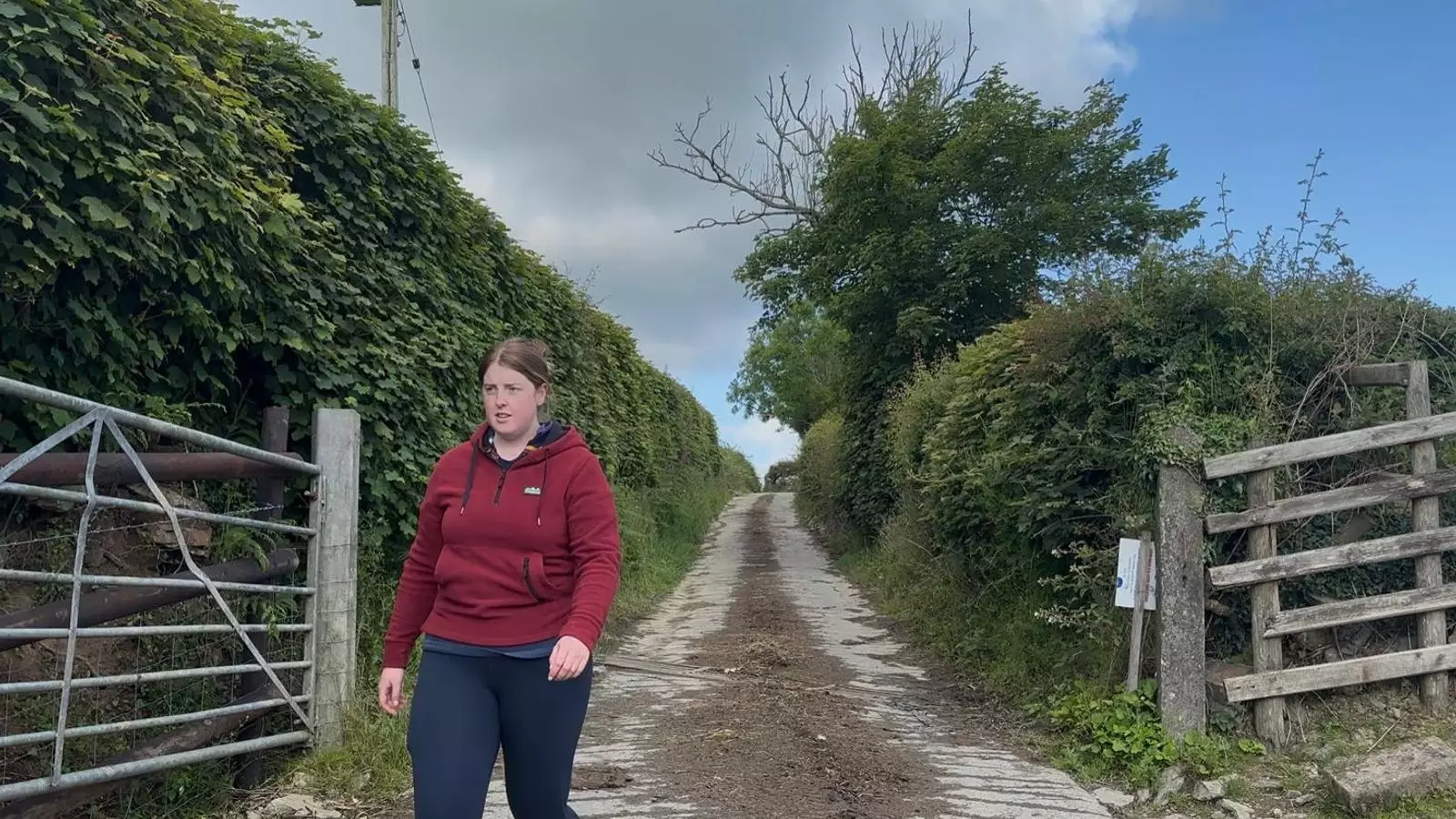Rural crime in Wales has spiraled to an alarming high, revealing a dark underbelly to pastoral tranquility. According to a recent report from NFU Mutual, rural crime has imbued farmers with a booming financial burden, with an estimated £2.8 million lost in the past year alone. This figure signifies an 18% surge compared to the previous year, a stark contrast against the UK trend, which marked an overall reduction. The data highlights a troubling reality: while urban areas may see diminishing crime rates, the pastoral landscape is increasingly fraught with danger.
This uptick in rural crime has caught the attention of farmers like Caryl Davies, who operates in Pembrokeshire. Following the theft of a quad bike essential for managing her family’s farm, she expressed a profound feeling of insecurity at home. Ms. Davies emphasized the stark reality that in previously safe environments, crime introduces a sense of unease that reverberates through daily life and agricultural operations.
Insecurity and Anxiety: The Human Cost
The theft of equipment vital for farm operations, such as quad bikes, significantly disrupts the reliability of rural farming. These machines aren’t mere luxuries; they are essential tools that enable farmers to perform daily operations efficiently. For Davies, losing their quad bike—an investment nearing £10,000—has caused more than just financial strain. It has inflicted emotional distress and anxiety, fracturing a sense of safety in what should be a sanctuary. The necessity to invest in enhanced security measures to protect against potential future theft only amplifies this distress; funds for such investments often don’t easily fit into tight farming budgets.
The sense of betrayal felt by farmers when they realize that their livelihoods are threatened by criminals is palpable. The distress is particularly acute given the already precarious economic situation in the agricultural sector, where profit margins are razor-thin.
A New Era of Organized Crime
The principals behind this surge in rural theft highlight a broader, unsettling trend: the emergence of organized crime targeting the countryside. Rural areas, perceived as vulnerable due to lower police presence, have seemingly become hotbeds for these criminal activities, as noted by Andrew Chalk of NFU Mutual. Criminal groups are now allegedly using sophisticated means, including drones, to identify and exploit weaknesses in rural defenses.
This organization heightens concerns about the future of rural communities. The calculated operations targeting multiple farms suggest that these are not random acts of theft but systematic intrusions intended to siphon resources from already beleaguered farmers like James Bourne, whose plight includes the repeated loss of sheep from his herd. The ramifications of such theft extend beyond economic loss; they encapsulate the psychological trauma faced by farmers who find themselves targeted by criminal syndicates.
A Call for Enhanced Community Collaboration
The response from law enforcement has been commendable yet marred by the challenges posed by vast rural regions that require monitoring. Technology and resources, such as advanced DNA asset-marking kits, are being introduced to curtail these crimes, but without community vigilance and reporting, these initiatives may fall short. Dyfed-Powys Police and Gwent Police acknowledge the limitations inherent in their patrol capabilities, emphasizing the need for farmers to collaborate in safeguarding their communities.
Rural populations must abandon any lingering notions of pastoral isolation and instead embrace a communal approach to fortification against crime. Alerting authorities to any unusual activities may hold the key to developing a more robust defense against intrusions that disrupt the fabric of rural life.
The Price of Inaction: A Message to Policymakers
As the costs of rural crime continue to permeate the agricultural sector, greater attention must be devoted to this pressing issue by policymakers. While urban crime statistics might buoy certain political narratives, the grim reality faced by rural communities demands urgent intervention and resources. A cohesive strategy addressing logistical limitations faced by the police, alongside concrete support for local crime prevention initiatives, is essential.
Failure to act could signify an acceptance of rural areas as milk cows for organized crime, gradually eroding the foundations of our agricultural community. The longstanding bond between these communities and their land represents more than mere economic activity; it encompasses culture, history, and a way of life that must be defended from the encroachments of rampant criminality. Farmers like Davies and Bourne are not merely victims; they are the custodians of rural heritage, fighting not just for their livelihoods but for the very essence of what makes rural Wales unique.


Leave a Reply